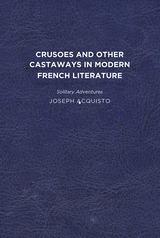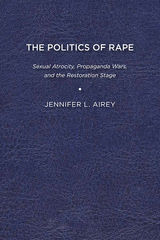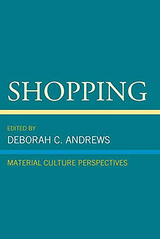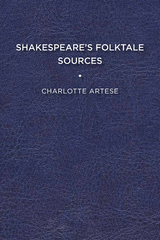106 scholarly books by University of Delaware Press and 5
have author last names that start with A
106 scholarly books by University of Delaware Press and 5
106 scholarly books by University of Delaware Press
5 have author last names that start with A have author last names that start with A
5 have author last names that start with A have author last names that start with A

Crusoes and Other Castaways in Modern French Literature
Solitary Adventures
Joseph Acquisto
University of Delaware Press, 2012
Crusoes and Other Castaways in Modern French Literature: Solitary Adventures by Joseph Acquisto examines the many ways in which the castaway, particularly in the form of engagement with Robinson Crusoe, has been reinterpreted and appropriated in nineteenth through twenty-first century French literature. The book is not merely a literary history of the robinsonnade in France; rather, Acquisto demonstrates how what he calls the genre of “solitary adventure” becomes a vehicle for exploration of much larger questions about the reception of texts, modes of reading, and the relationship between popular and serious literary traditions. The heart of Crusoes and Other Castaways in Modern French Literature examines a crucial moment in the late nineteenth and early twentieth centuries when the history of cultural perspectives on reading and solitude intersect, catalyzing a reconsideration of Defoe’s tale. Acquisto’s philosophically inflected readings of works by writers from Rousseau to Balzac, Verne to Gide, Valéry to Tournier enhance intertextual and cultural approaches to the castaway myth and broaden our appreciation of the dynamic relation it has to modern French literature writ large.
Published by University of Delaware Press. Distributed worldwide by Rutgers University Press.
Published by University of Delaware Press. Distributed worldwide by Rutgers University Press.
[more]

The Idea of the Sciences in the French Enlightenment
A Reinterpretation
G. Matthew Adkins
University of Delaware Press, 2014
This book traces the development of the idea that the sciences were morally enlightening through an intellectual history of the secrétaires perpétuels of the French Royal Academy of Sciences and their associates from the mid-seventeenth century to the end of the eighteenth century. Academy secretaries such as Fontenelle and Condorcet were critical to the emergence of a central feature of the narrative of Enlightenment in that they encouraged the notion that the “philosophical spirit” of the Scientific Revolution, already present among the educated classes, should guide the necessary reformation of society and government according to the ideals of scientific reasoning. The Idea of the Sciences also tells an intellectual history of political radicalization, explaining especially how the marquis de Condorcet came to believe that the sciences could play central a role in guiding the outcome of the Revolution of 1789.
Published by University of Delaware Press. Distributed worldwide by Rutgers University Press.
Published by University of Delaware Press. Distributed worldwide by Rutgers University Press.
[more]

The Politics of Rape
Sexual Atrocity, Propaganda Wars, and the Restoration Stage
Jennifer L. Airey
University of Delaware Press, 2013
The Politics of Rape: Sexual Atrocity, Propaganda Wars, and the Restoration Stage is the first full-length study to examine representations of sexual violence on the Restoration stage. By reading theatrical depictions of sexual violence alongside political tracts, propaganda pamphlets, and circulating broadsides, this study argues that authors used dramatic representations of rape to respond to and engage with late-century upheavals in British political culture. Beginning with an examination of rape scenes in English Civil War propaganda, The Politics of Rape argues that Roundhead authors described acts of rape and atrocity to demonize their enemies, the Irish, the Catholics, and the Cavaliers. After the Restoration, propagandists and playwrights on each side of every political conflict would follow suit, altering the rhetoric of sexual violence in response to each new moment of political upheaval: The Restoration of Charles II, the Second and Third Anglo-Dutch Wars, the Popish Plot, the Exclusion Crisis, the Glorious Revolution, and the accession of William and Mary. The study offers an intensive look at British propaganda culture, gathering together a wealth of understudied pamphlet texts, and identifying a series of stock figures that recur throughout the century: The demonic Irishman, sexually violent villain of the 1641 Irish Rebellion tracts; the debauched Cavalier, the secretly Catholic royalist rapist; the poisonous Catholic bride, the malignant consort who encourages the rapes of Protestant women; the cannibal father, the evil patriarch who rapes his daughters-in-laws before ingesting his own sons as a symbol of monarchical overreach; and the ravished monarch, the male rape victim whose sexual violation protests his political disenfranchisement. The study also traces the appearance of these figures on the British stage, examining well-known works by Dryden, Rochester, Behn, Lee, and Shadwell, alongside lesser-known plays by Orrery, Howard, Settle, Crowne, Ravenscroft, Pix, Cibber, and Brady. The Politics of Rape thus offers a new method for understanding of the geo-political implications of theatrical sexual violence.
Published by University of Delaware Press. Distributed worldwide by Rutgers University Press.
Published by University of Delaware Press. Distributed worldwide by Rutgers University Press.
[more]

Shopping
Material Culture Perspectives
Deborah C. Andrews
University of Delaware Press, 2015
The degree to which shopping, or, more broadly, consumerism, is both critiqued and defended in American society confirms the role that commercial goods play in our daily lives. This collection of essays provides case studies depicting selected aspects of this engaging activity. The authors include several historians with diverging specialties: an art historian, an anthropologist, an environmental journalist, a geographer and urban planner, and practicing artists. Each author demonstrates how a material culture perspective—a focus on the relationship between people and their things—can illuminate a specific corner of consumption. Connecting the essays are concerns about the spaces in which shopping occurs; about the experience of shopping itself, both individual and social; and about its economic, environmental, and personal downsides. Collectively, these essays demonstrate how a material culture perspective on shopping yields insights into multiple aspects of American culture.
Published by University of Delaware Press. Distributed worldwide by Rutgers University Press.
Published by University of Delaware Press. Distributed worldwide by Rutgers University Press.
[more]

Shakespeare's Folktale Sources
Charlotte Artese
University of Delaware Press, 2015
Shakespeare’s Folktale Sources argues that seven plays—The Taming of the Shrew, Titus Andronicus, The Merry Wives of Windsor, The Merchant of Venice, All’s Well that Ends Well, Measure for Measure, and Cymbeline—derive one or more of their plots directly from folktales. In most cases, scholars have accepted one literary version of the folktale as a source. Recognizing that the same story has circulated orally and occurs in other medieval and early modern written versions allows for new readings of the plays. By acknowledging that a play’s source story circulated in multiple forms, we can see how the playwright was engaging his audience on common ground, retelling a story that may have been familiar to many of them, even the illiterate. We can also view the folktale play as a Shakespearean genre, defined by source as the chronicle histories are, that spans and traces the course of Shakespeare’s career. The fact that Shakespeare reworked folktales so frequently also changes the way we see the history of the literary folk- or fairy-tale, which is usually thought to bypass England and move from Italian novella collections to eighteenth-century French salons. Each chapter concludes with a bibliography listing versions of each folktale source as a resource for further research and teaching.
Published by University of Delaware Press. Distributed worldwide by Rutgers University Press.
Published by University of Delaware Press. Distributed worldwide by Rutgers University Press.
[more]
READERS
Browse our collection.
PUBLISHERS
See BiblioVault's publisher services.
STUDENT SERVICES
Files for college accessibility offices.
UChicago Accessibility Resources
home | accessibility | search | about | contact us
BiblioVault ® 2001 - 2024
The University of Chicago Press









